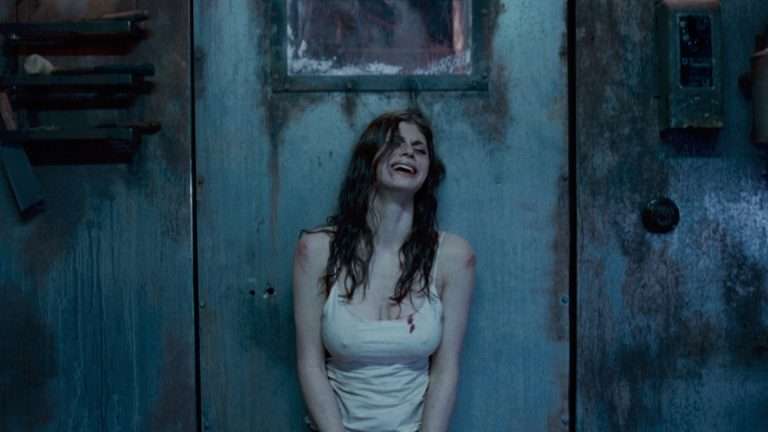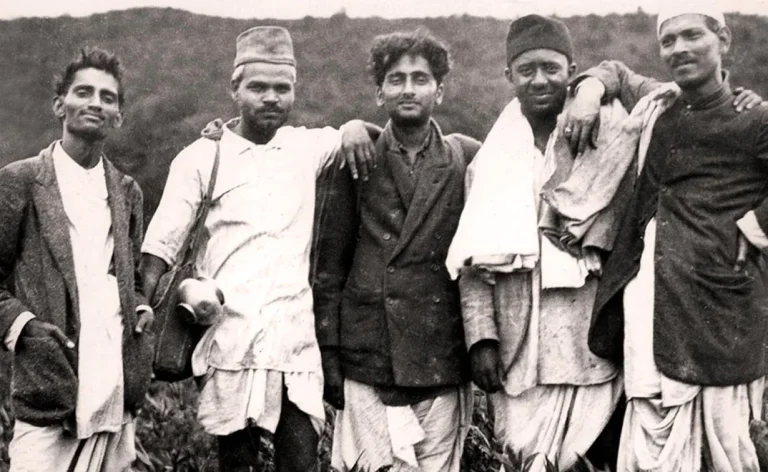Crater (2023) Review: Crater is a Disney “marvel.” It has been a long wait for a bonafide tearjerker from the “original jerkers,” but boy have they delivered. Without exaggeration, Crater might be the most compelling story of the year, told without dramatic antics or the quirky, off-beat vein that modern stories are told in. It is about everything that makes us human; our feelings and emotions, our memories, our consciousness, and our life experiences. Despite its U/A plot and story, Crater is elevated by its seasoned makers and their cinematic intellect to become so much more by the end. Its final thrust will remind you of Interstellar and bring a gush of emotions, leaving you overwhelmed.
Shawn Levy (Stranger Things, Free Guy, The Adam Project) and Dan Levine (Arrival, The Darkest Minds) bring a lot of credibility to the fore and produce along with Dan Cohen from a story by John Griffin and Rpin Suwannath. A sweeping generalization would place Crater in the realm of science fiction. A group of kids in the year 2257 plan an escape onto the surface of the moon from their Lunar Mining Colony to celebrate one of their own’s last days on the moon. A dangerous meteor shower warning has prompted a three-day lockdown, but the kids have other plans. Caleb, Dylan, Marcus, and Borney join hands – reluctantly and with a compromise – with the “new kid from the earth,” Addison (McKenna Grace), to go on a trip that will define the rest of their lifetimes.
But that is pretty much where the sci-fi tinge of the plot ends, and a completely new tone and conscience shape the rest of the film. The transition is not jarring or forced and even keeps up the appearance of the central premise – a story about kids giving their best friend his final hurrah. Once the realization of what the creators of the film are actually trying to do sets in, our perception as a viewer changes. There is a sense of seriousness and level-headedness in moving forward. This change is organic and without the strain of resetting a narrative arc.
The original perception meshes with the new one and fuels its take-off. And it never feels that Crater is in uncharted territory. Although the cast is quite young – mostly early teens – and not as experienced except McKenna Grace, they feel right at home. They gleefully channel the innocence of curiosity, friendship, and optimism, untainted by the wariness and weariness of adulthood. But they still maintain a surprising maturity in their portrayals. Grace, who recently tasted success with Slumberland, takes the limelight when her character Addison gradually becomes one of the group’s own.

Isaiah Russell-Bailey and Billy Barat are the other key performers in the cast. Crater’s themes transcend the offshoots of genres in the act of clever narrative positioning. Its theatrical potential is subverted to the advantage of the makers by not saddling the children with the responsibility to carry the weight of expectations. Despite the heady and complex ideas, the perspective with which the cast emotes is within reach for them.
One of the oddest connections you might find is with the Netflix film Apollo 10 1⁄2: A Space Age Childhood by Richard Linklater. Although Crater is not in the verbose and spontaneous style of Linklater, it is spiritually linked to Crater of the contrast in their perspectives. While Apollo 10 ½ romanticizes the idea of going to space for a generation, Crater grounds its periscope in one that didn’t grow up on Earth at all. They do not know how blue the sky really is, how magical it is to feel the wind slapping on your cheeks and the warmth of the sunlight. It is easy to spot the irony in comparing the two sets of worldviews and their impact.
Crater also offers a treasure trove of social commentary well hidden at the film’s core without contrivance. Instilled in the children, who each have their troubles in life, is an outrage against institutional selectivism that you wouldn’t expect at all. That stems from Crater’s perfect positioning in the middle ground of childhood and adulthood to have sensibilities of both worlds. Crater really surprises you with its emotional depth and magnitude of exposition. Its brevity, charm, and emotional graft in both conception and execution are commendable.
Crater celebrates the hallmark of our existence: us. Its resonant ending dictates that life is an act of letting go but also holding on to what really gives us meaning in life; what makes it memorable. Through its revolving door, you will meet many people and form many connections. But a few of them will stick with you, and those are the stories that you will tell.




![This Is Not Berlin [2019]: ‘Tribeca’ Review: The Outsiders](https://79468c92.delivery.rocketcdn.me/wp-content/uploads/2019/05/this-is-not-berlin-1-768x385.jpg)


